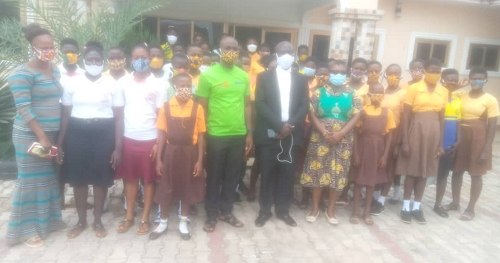
UNFPA empowers adolescent girls on Domestic Violence Act
The United Nations Population Fund (UNFPA) has schooled 117 young girls in the Upper East Region on the Domestic Violence Act and Sexual and Gender-based Violence (SGBV) as part of measures to safeguard them against exploitation.
The adolescent girls both in and out of school were selected from six districts of the region. They were empowered to act as ambassadors against SGBV and the operation of the Domestic Violence Act of 2007, Act 732.
Advertisement
The training programme dubbed “legal literacy training”, which had financial support from the government of Canada, was to further equip them with the basic human rights and responsibilities as enshrined in the 1992 Constitution to enable them fight various abuses particularly SGBV.
The training was held on the theme, “empowering adolescent girls on their rights to end sexual and gender based violence.”
UNFPA
The Focal Person of UNFPA at the Upper East Regional Coordinating Council, Ms Yvonne Wonchua said the young girls were selected from the Builsa South, Nabdam, Kassena-Nankana West, Bongo, Talensi and Bawku West Districts.
She said the first batch of 39 young girls were trained and 78 girls for the second batch bringing the total number of girls trained to 117.
Ms Wonchua explained that the selected districts were targeted due to the high rate of teenage pregnancies being recorded in the areas annually and the programme was aimed at training the young girls to help impart the knowledge they had acquired to their colleagues to help fight the menace.
The Focal Person further indicated that although both boys and girls experienced sexual and gender based violence as well as domestic violence, girls were mostly affected and therefore it was necessary to give the young girls the training to ensure that they were equipped with the knowledge to stand for their rights and report abuses to the mandated institutions.
This, Ms Wonchua stated, would help contribute to ensuring gender equality and the attainment of the Sustainable Development Goals (SDGs) particularly goal five.
The Regional Director, Department of Gender,Mr James Twene indicated that the sociocultural beliefs and practices of some societies were dehumanizing and did not support the fight against gender based violence especially against the girls.
Ignorance
A Legal Practitioner and Regional Director of the Commission on Human Rights and Administrative Justice (CHRAJ),Mr Jaladeen Abdulai said there were state institutions in some of the districts which the young girls could report to or seek advice from when their rights were infringed upon.
He said most of the young girls were ignorant about the law and were being exploited adding that there was the need for intensive education to be carried out to ensure that people knew their rights and the channels to lay complaints when their rights were abused.
Mr Abdulai noted that when the girls were empowered to know their rights they would be able to report the perpetrators to the appropriate authorities for arrest and prosecution if they were found culpable of any offence.
The director called for stiffer punishment to be meted out to people who engaged in abusing the rights of girls.




